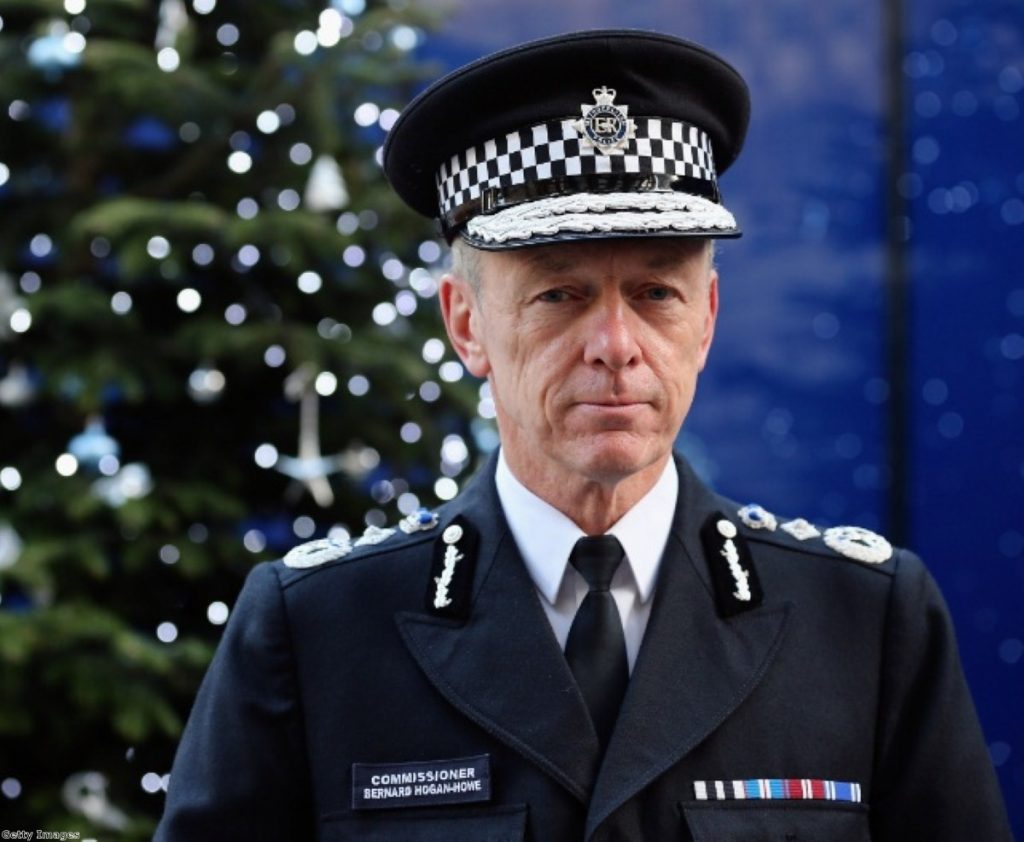Police chief under fire as plebgate continues in reverse
Metropolitan commissioner Bernard Hogan-Howe is enduring a troubled Christmas, as Conservative allies of Andrew Mitchell continue to pile on pressure over the plebgate scandal.
The former chief whip is continuing his bid to drive back the scandal which forced him from office this autumn, after questions emerged about the validity of police claims about his brush with officers manning the Downing Street gate.
Mitchell was supposed to have called police "f***ing plebs", but evidence which emerged last week has called that into question.
The Met now faces allegations that its officers fabricated an email, supposedly from a member of the public, backing up the police's version of events.


"This vile email – replete with capital letters and misspellings – was utterly untrue," Mitchell wrote in an article for the Sunday Times newspaper.
"The sender is not a member of the public but a serving police officer and member of the diplomatic protection squad, and he was nowhere near Downing Street that night.
"For the next three weeks these awful phrases were hung round my neck in a concerted attempt to toxify the Conservative party and destroy my political career. I never uttered those phrases; they are completely untrue."
The Met has begun an internal review into the affair, supervised by the Independent Police Complaints Commission and undertaken by deputy assistant commissioner Pat Gallan.
Hogan-Howe interrupted his festive break to make a statement in which he emphasised the welfare of the officers involved and underlined the "ruthless search for truth – no matter where the truth takes us".
But he faces questions from critics who point out the commissioner had publicly defended the officers in question shortly before CCTV evidence emerged.
Former director of public prosecutions Ken Macdonald asked: "What exactly does Bernard Hogan-Howe consider is the purpose of having an inquiry into the men he has already exonerated on television? This speaks of an arrogance of power that we've seen far too much over the past 40 years."
An unnamed minister quoted by the Times newspaper was among those suggesting the government could use the plebgate scandal to move faster against the Met's current powers.
Its "foot-dragging and sense of entitlement over what are really Spanish practices makes it easier for us", the minister said.
No 10 stepped up its own defence of Mitchell in response to suggestions from some Tory figures that Downing Street had handled the affair poorly.
"The prime minister has deep sympathy for Andrew Mitchell after allegations emerged that a serving police officer fabricated evidence against him," a statement released at the weekend said.
"The prime minister stood behind his chief whip through weeks of growing demands to sack him. It was only when it became clear that he could no longer do his job that his resignation was accepted with reluctance."
The statement added: "The prime minister, and Andrew Mitchell, were deeply shocked to be informed that the police were investigating allegations that a serving police officer had lied about the events."
It is not just the Met which faces criticism. The Police Federation, the main union body for officers, was accused of using tactics similar to those of "militant trade unionists" by former commissioner Paul Stephenson in an article for the Sunday Telegraph newspaper.
Chair-elect Steve Williams has announced an independent panel will review the organisation's structure after West Midlands members mounted an aggressive campaign calling for Mitchell to resign.









